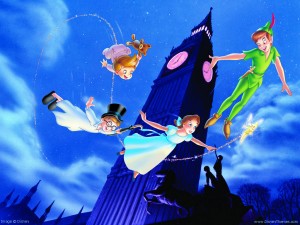Along Came a Spider
Posted on December 13, 2002 at 5:17 am
Morgan Freeman returns as Dr. Alex Cross in this prequel to “Kiss the Girls.” Like the original, this movie has a nursery rhyme title and centers on a kidnapped girl. This time it is not a serial killer, just a madman inspired by the Lindburgh kidnap case, trying to make a name for himself with the crime of the new century. And this time the kidnap victim is not a woman but a little girl, the daughter of a United States Senator.
Freeman, as always, is a pleasure to watch, bringing a complexity and weight to every scene that almost makes up for a dumb plot. But even he cannot make up for Monica Potter, who replaces Ashley Judd as Freeman’s co-star, and who is as bland as a Barbie doll, and with an even blanker facial expression.
Potter plays Jazzie, a Secret Service agent assigned to a fancy school for the children of big shots and rich people. It’s the kind of place where every desk has an internet hookup and there are more Secret Service agents around than hall monitors. Let me just point out here that the Secret Service does not protect the children of Senators or even Senators themselves, who are in a different branch of government. We’ll give them some leeway for movie logic on that one. But there are some lapses, like having the President of Russia living in Washington, DC, that are inexcusably preposterous.
Jazzie blames herself when Megan (Mikka Boorem) is taken, and she is grateful when Alex Cross, himself recovering from a disastrous sting operation, wants her to work with him. They track down the kidnapper and prevent a second child from being taken. And there are shoot-outs, chases, and near-misses, some well staged. But the final twist is just plain dumb, and neither the performers nor the script’s explanation of the characters’ motivation have the panache to carry it off. No one could, especially when they resort to that hoariest of clichés, the good guy figuring it all out and then going out to the deserted location where it is all happening all by himself! At least they spare us the long explanation by the villain about the master plan.
Parents should know that the movie is very violent, with many deaths and some of the brightest-colored blood I have ever seen spurting in a movie. Characters use strong language. Many people may be upset by seeing children in peril, though Megan and her friend are strong, brave, loyal, and very smart. Other characters betray the trust of people who have been good to them, which may be disturbing to some viewers.
Families who see the movie should talk about what people do when they have to pick themselves up and go on following a disaster. They may also want to talk about how we decide whom we will trust and how we find reserves of strength when we are in scary situations. They should discuss Cross’ statement that everyone is born with a gift or gets good at something and “you don’t betray that.” They might also want to talk about whether criminals really are motivated by the prospect of fame, and whether there is or ever will be again a hero as universally adored as Lindburgh was.
Families who enjoy this movie will also enjoy “Kiss the Girls” and an enjoyably dumb movie with a similar theme, Masterminds, a kind of “Die Hard” in a fancy prep school, with Patrick Stewart as the bad guy. Next to this one, “Masterminds” looks like “Citizen Kane.”

